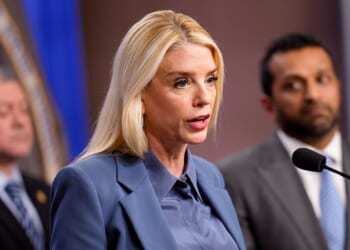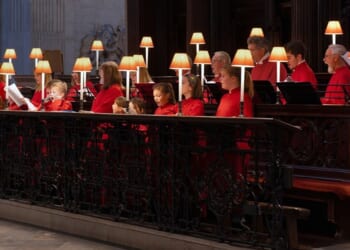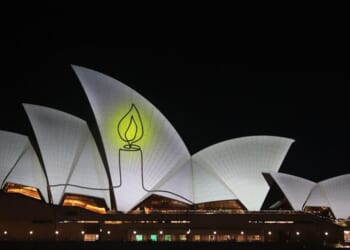(LifeSiteNews) — To understand how the mainstream press reports on the ongoing LGBT revolution transforming our societies, it is important to understand that they are fundamentally operating from the premises of LGBT ideology.
Thus, politicians or people objecting to this revolution are not defenders of “norms” or the status quo, but are cast as extremists. This is a potent and effective form of gaslighting. Objections to very new, very revolutionary LGBT curriculums in schools, for example, is inevitably portrayed as an “extremist backlash” rather than a mere refusal to abandon the sex binary or accept 72 genders.
READ: Supreme Court hears major case on Colorado’s ‘conversion therapy’ ban
A new report from the Guardian last month, titled “Politicians in at least 51 countries used anti-LGBTQ+ rhetoric during elections, NGO finds,” highlights these tactics. The report emphasizes that there is a rise in condemnations of “gender ideology.” Of course, circa 2014, few people had even heard of gender ideology. In the decade since, trans activists have aggressively attempted to remake society according to that ideology, and thus the “rise” in this “rhetoric” is actually an attempt to resist this revolution.
“You talk with a politician from Peru … or Hungary or the U.K., you start to see common trends and you realise that it’s a global, coordinated and increasingly well-funded effort to diminish LGBTIQ people,” stated Alberto de Belaúnde, a director at the pro-LGBT NGO Outright International. Hungary, however, is passing very popular laws that reflect a once normative belief: that children should be protected from sexual propaganda.
The U.K., which is governed by the far-left Labour Party, is merely banning sex changes for children (but is still arresting comedians for “transphobic” social media posts). Peru’s crime is recognizing the definition of gender dysphoria accepted by the World Health Organization up to 2019, which changed after relentless lobbying by trans activists. In short, because the LGBT movement feels that their revolution is not moving quite quickly enough and that some politicians are insufficiently enthusiastic about getting with the program, they are accused of “scapegoating” or being “far-right.”
Indeed, Outright International even objected to the obviously true assertion by some politicians that Western countries are attempting to force the LGBT revolution on other countries. As the Guardian put it: “In the campaign for parliamentary elections in the former Soviet republic of Georgia in October 2024, the ruling Georgian Dream party claimed that LGBTQ+ activists were ‘foreign agents’ of the west, out to corrupt the country’s ‘traditional values.’” It is indisputable that massive pro-LGBT NGOs are using their cash and media influence to do just that, as the story of the first formal refugee fleeing a transgender regime recently highlighted.
Another alleged example of “discrimination” highlights the true goal of this revolution: the abolition of the natural family. From the Guardian: “In Germany, the far-right Alternative für Deutschland said it was against ‘other forms of cohabitation than between a man and a woman’ being treated equally.” Indeed, LGBT activists described it as a “dark day” for Slovakia when the government recently reaffirmed that there are only two sexes and restricted the ability of same-sex couples to adopt.
The press described the actions of the Slovakian government as “as part of a wider rollback of human rights and rule of law in the central European country.”
Even the small Oceanic country of Vanuatu has not escaped the revolution. In May, the Pacific Island country’s Parliament passed a constitutional amendment that recognizes only two sexes, and the government stated that it will “draw a line” against “foreign” LGBT influences that conflict with the nation’s traditional views on sex and marriage. ABC News promptly published a hit piece:
When Ashley goes out in Vanuatu, he finds it hard to express his non-binary gender identity. Growing up in a Christian family, he was taught there were only two genders: male and female. Inside, he felt differently, identifying privately as non-binary.
But Ashley – whose real name and identity the ABC has withheld for safety reasons – said he expressed himself publicly as a male to respect what his family taught him.
“I feel it’s hard for me to … wear a dress when walking on the road, to show people [who I am],” he said. Ashley, who uses male pronouns, said there were other challenges for people with diverse genders in Vanuatu. The capital Port Vila was a hard environment for LGBTQIA+ people, he said. Advocates for LGBTQIA+ people in the Pacific fear a proposed change to Vanuatu’s laws will further marginalise people with diverse sexualities and genders, and people with intersex variations.
READ: Trump mocks ‘woke’ transgender ideology in meeting with Mark Carney
Vanuatu Christian Council Chairperson Collin Keleb stated that the amendment, which is being reviewed by the Supreme Court, protects the country’s Christian principles and cultural identity, and said that LGBT-identifying people should be included in the community, but that LGBT organizations become tools of “foreign” interference.
“We preserve what the Bible – God’s word – says, to ensure that we remain as man and woman,” Keleb said. Indeed, even ABC News affirmed, in a throwaway paragraph, that LGBT activist influences were primarily coming from abroad:
Observers who have studied and lived in the Pacific say debate about LGBTQIA+ issues has grown in the past two years – partly through exposure on social media to anti-LGBTQIA+ activism from outside the region, particularly the United States.
But for LGBT activists and the press, to resist the revolution is to become an extremist. To defend the natural family is to be “far right.” And despite the fact that gender ideology exploded onto the political scene scarcely a decade ago, to insist that there are two sexes is now radical.


















